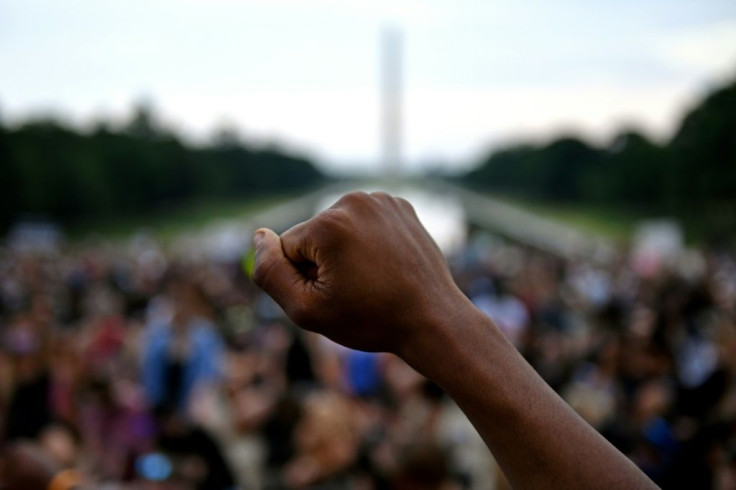Black Lives Matter Channels Martin Luther King Jr. On 57th Anniversary Of The March On Washington
KEY POINTS
- Rev. Al Sharpton and Martin Luther King III announced the march shortly after Black Lives Matter protests began
- It falls on the 57th anniversary of the 1963 March on Washington punctuated by Martin Luther King Jr.'s "I Have a Dream" speech
- The march will begin at the Lincoln Memorial and will end at the Martin Luther King Jr. Memorial in Washington DC
On the 57th anniversary of Martin Luther King Jr. leading his march on Washington D.C., Black Lives Matter and civil rights leaders united Friday to lead another march on the nation’s capital amid ongoing civil unrest over racial injustice.
Announced by Rev. Al Sharpton as part of his eulogy for George Floyd on June 4, the Commitment March in Washington kicked off around 10:30 a.m. Friday as supporters began to gather outside the Lincoln Memorial.
Several speakers were set to appear, from public officials like Rep. Ayanna Pressley, D-Mass., to people who lost family and loved ones to police brutality. Sharpton and Martin Luther King III, who organized the event, were set as the headline speakers for the rally.
Once the speakers have addressed the crowd, they will then march on the Martin Luther King Jr. Memorial.
“We are tired of the mistreatment and the violence that we, as Black Americans, have been subjected to for hundreds of years,” Sharpton said in a press release. “Like those who marched before us, we are standing up and telling the police, telling lawmakers, telling the people and systems that have kept us down for years, 'Get your knee off our necks.'”
It is available to watch live on most major cable and network channels, along with their respective news arms online. Livestreams are also available to watch on social media and YouTube.
The original march took place on Aug. 28, 1963, when Martin Luther King Jr. and fellow civil rights leaders led between 200,000 and 300,000 people on a historic march across Washington. It is widely considered instrumental in convincing Congress to pass the Civil Rights Act of 1964.
King punctuated the march with his now-iconic “I Have a Dream” speech from the steps of the Lincoln Memorial. King was flanked by other leaders of the civil rights movement such as Roy Wilkins, John Lewis, Walter Reuther, and the march’s organizers A. Philip Randolph and Bayard Rustin.
King addressed the crowd, saying:
“I have a dream that one day this nation will rise up and live out the true meaning of its creed: ‘We hold these truths to be self-evident, that all men are created equal.’”
“I have a dream that one day on the red hills of Georgia, the sons of former slaves and the sons of former slave owners will be able to sit down together at the table of brotherhood.”
“I have a dream that one day even the state of Mississippi, a state sweltering with the heat of injustice, sweltering with the heat of oppression, will be transformed into an oasis of freedom and justice.”
“I have a dream that my four little children will one day live in a nation where they will not be judged by the color of their skin but by the content of their character.”
“I have a dream today!”
King III said under different conditions, there wouldn’t have been a march on the 57th anniversary of his father’s historic march in 1963. However, a summer of unrest sparked by the death of George Floyd on May 25 showed such a rally was necessary, especially as progress appeared to slow.
“We all saw some things begin to move a short period of time after, tragically, George Floyd was killed, but we haven't made the kind of steps that we need to, certainly not at the national level,” King III told ABC News.
The march was originally estimated to draw over 100,000 people to Washington, but organizers were forced to scale back due to coronavirus restrictions. However, it is still expected to draw over 50,000 people.

© Copyright IBTimes 2025. All rights reserved.





















